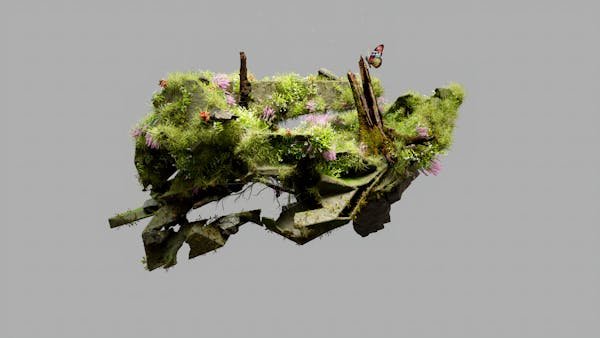Introduction:
The intersection of artificial intelligence AI fantasy presents an intriguing fusion of the imaginative and the technological. In the realm of science fiction, AI is often depicted as an omnipotent force capable of creating worlds, solving complex problems, and even influencing human emotions. With advancements in AI technologies such as natural language processing, generative models, and immersive virtual environments, the line between fantasy and reality is becoming increasingly blurred. This article explores the fascinating relationship between AI and fantasy, investigating how AI is shaping storytelling, art, and the very concept of what’s possible.
1. The Rise of AI in Creative Industries
In recent years, AI has significantly influenced industries traditionally rooted in human creativity, such as literature, visual arts, music, and filmmaking. AI-driven tools now enable artists to generate content from scratch, remix existing works, and even collaborate with machines in ways that were previously unimaginable. For instance, AI models like GPT-4 can generate intricate narratives, create fantastical worlds, and build complex characters. In the world of visual arts, AI tools like DALL·E allow creators to bring their wildest visual fantasies to life with just a few words. The creative industry has welcomed AI as an assistant, a co-creator, and sometimes even an independent creator, blurring the lines between human and machine-generated content. These advancements signal a future where AI not only supports creativity but also plays a pivotal role in shaping and challenging artistic norms.
2. AI as a Tool for Storytelling and World-Building
Storytelling is one of the oldest and most cherished human endeavors, and AI is poised to revolutionize this art. Through natural language processing and machine learning, AI can generate entire narratives, create dialogue, and even design intricate plot twists that capture the imagination. In the context of fantasy, AI is particularly potent because it can help craft complex, multi-layered universes where the rules of reality can be bent or broken entirely. By analyzing vast amounts of data from existing works of fiction, AI can craft stories that align with established tropes while also offering fresh, unexpected directions. Fantasy writers can use AI as a tool to create mythologies, character arcs, and conflicts, while also exploring new realms of possibility, where AI’s unpredictable nature introduces elements of surprise. This collaboration between human imagination and AI’s computational power offers writers new ways to express the fantastical and expand the boundaries of narrative.
3. The Role of AI in Immersive Fantasy Experiences
Immersive technologies, such as virtual reality (VR) and augmented reality (AR), have opened new dimensions in the way people experience fantasy worlds. AI plays a central role in these experiences, driving the intelligent systems that power interactive environments. For example, in a fantasy-based video game or a VR experience, AI can control the behavior of non-playable characters (NPCs), create dynamic story arcs, and adjust the environment in real time based on the player’s actions and choices. This interactivity makes fantasy worlds more engaging and personalized. \ The combination of AI and immersive technologies has the potential to create entire universes where users can step into fully realized, self-contained worlds of their own design, all while interacting with AI-driven characters and environments that respond organically to their presence.
4. The Ethical Implications of AI in Fantasy Creation
As AI continues to make its mark on fantasy creation, it raises important ethical questions about authorship, ownership, and the role of AI in artistic expression. If an AI creates a novel or a painting, who owns the rights to that work? Is the creator the person who programmed the AI, or does the AI itself hold some form of intellectual property? These questions also extend to the moral considerations of AI in fantasy worlds, especially when these worlds involve complex moral dilemmas or deal with sensitive themes such as artificial consciousness, free will, and autonomy. While AI can bring new dimensions to storytelling and world-building, creators must also navigate the responsibilities that come with creating fantastical scenarios that could shape public perception or influence society’s understanding of technology. The ethical debate surrounding AI and creativity is one that is just beginning and will undoubtedly play a pivotal role in how AI is used in the future.
5. The Future of AI Fantasy: What Lies Ahead?
Looking to the future, AI’s potential in fantasy creation appears limitless. We may soon see AI that not only enhances traditional storytelling but creates entirely new forms of entertainment. Imagine AI-generated novels or films that adapt and evolve in real time, responding to audience preferences and adjusting plots on the fly. Future AI technologies could even allow for fully immersive, personalized experiences where each user interacts with their own unique version of a fantasy world, tailored to their preferences and interests. The possibilities for AI-driven fantasy are exciting, but they also raise further questions about how AI will continue to shape our cultural landscapes. Will AI create entirely new genres of entertainment, or will it remain a tool to enhance human creativity?
Conclusion:
The union of artificial intelligence and fantasy is transforming the creative landscape in ways that were once confined to the realms of science fiction. While it challenges traditional notions of authorship and creativity, it also offers new avenues for exploration and innovation. As AI continues to evolve, the fantasy worlds it helps build will become increasingly sophisticated, reflecting our own desires, fears, and dreams. The future of AI fantasy is just beginning, and its potential is as limitless as our own imaginations


